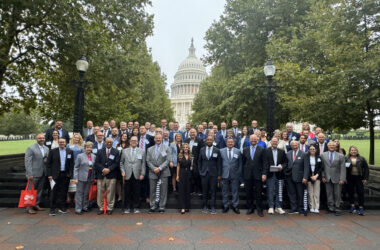Used vehicle payments hit a record high in the fourth quarter of 2022, due to rising interest rates.
With interest rates increasing to 10.26 percent, the average monthly payment topped $526, according shared in Experian’s State of Automotive Finance Market Fourth Quarter report.
The average payment was up $11 from the third quarter, even though the amount financed was down $766 to $27,768.
Interest rates have been increasing throughout the past year as the Federal Reserve tries to bring down inflation, which reached 9 percent in June. Used car interest rates increased from an average of 8.22 percent at the end of 2021 to 10.26 at the close of 2022.
Consumers have also stretched out terms to make vehicles more affordable. The average term increased to 68.01 months, up from 67.35 at the end of 2021. It’s more than two months longer than the average term at the end of 2020.
Sales at independent dealers decreased to 48.06 percent of used vehicle transactions, down from 48.61 percent in 2021 and 49.33 percent in 2020.
For used car loans in the independent space, 39.23 percent were financed at buy-here, pay-here dealerships. Another 25.32 percent were with finance companies and 20.8 percent with credit unions.
Among all used vehicle loans, 31 percent were issued by credit unions, with lowest rates around 7.03 percent. Bank loans fell from 33 .91 percent to 27.21 percent, with the average rate of 9.34 percent.
“The biggest driver of credit union growth was lower interest rates, for both new and used vehicle financing. Even as rates overall have increased, credit unions have managed to be a full percentage point lower than other lenders,” said Melinda Zabritski, Experian’s senior director of automotive financing in a press release. “In addition to lower rates, we continue to see fewer incentives from captive lenders, giving credit unions the opportunity to grow market share in the competitive rate environment. Having a broader understanding of data like interest rates can help lenders and dealers make strategic decisions and serve consumers effectively.”
Of used loans, 56 percent were for prime borrowers. Subprime borrowers fell to under 20 percent.
Experian reported a rise in delinquencies year-over-year. The amount of 30-day delinquencies rose from 1.86 percent to 2.31 percent. The 60-day delinquencies increased from 0.66 percent to 0.87 percent.
“Inflation continues to impact financing of vehicles and delinquencies continue to rise as we move into a period of higher-than-normal delinquencies. Subprime borrowers will continue to grow as credit scores dip due to delinquencies in installment and revolving lines.”
Jeremy Beck, NIADA Vice President of Dealer Development and Industry Insights
“The key indices we see in this Experian report have been expected month over month,” said Jeremy Beck, NIADA Vice President of Dealer Development and Industry Insights. “Inflation continues to impact financing of vehicles and delinquencies continue to rise as we move into a period of higher-than-normal delinquencies. Subprime borrowers will continue to grow as credit scores dip due to delinquencies in installment and revolving lines.
“To continue to flourish through economic uncertainty, independent dealers need to be diligent in three main areas of their business — quality inventory their customers can afford, providing a positive customer experience grounded in transparency and confidence in a quality vehicle they can afford, and managing their portfolios both those they place with lenders and those they finance in house. Focusing on these three areas will help independent dealers navigate the headwinds the economy continues to send.”
Used car prices remain much more affordable than new vehicles. The average new car payment rose to $716, with $41,445 finances. The average new car rate is at 6.07 percent with the average term at 69.44 months.










